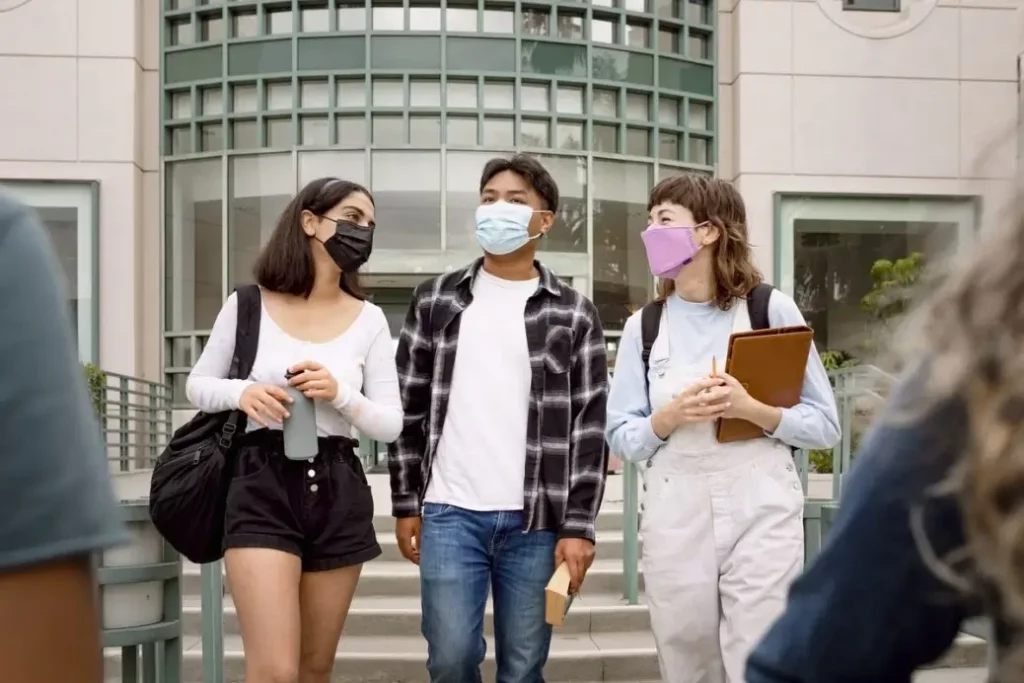
An opportunity to study in the United States doesn’t occur that often. It can be a turning point in a person’s life. Studying in the United States is a great chance for any student who desires to travel abroad. Thus, they can expand their knowledge, master skills, and meet new people.
A great experience as it is, it would be amazing to have a chance to work while you’re enrolled in college. Attending a U.S. university can be expensive. Being able to earn some extra cash is definitely an advantage. Lucky for you, with a certain U.S. non-immigrant, student visa, that’s definitely possible!
When it comes to working in the United States as a student, there are two main job types you can have: on-campus and off-campus jobs. For international students in the United States, the most convenient jobs are usually on-campus jobs. Some visas don’t allow students to work off-campus, and the commuting hassle is avoided.
Now, let’s take a look at the three types of U.S. student visas, F1, M1, and J1, and the possibilities you have with them.
An F1 visa is for academic studies. It’s issued to international students who plan to attend an academic program at institutions certified by the Student and Exchange Visitor Program (SEVP). The majority of international students that come to study in the United States apply for an F1 visa.
As an F1 visa holder, you’re not allowed to work off-campus. However, an F1 visa allows you to work for up to 20 hours per week on the campus of your university. During school break, you can even work up to 40 hours per week.
The M visa is for vocational and technical schools. One of the requirements is that you attend a full course of study. This non-immigrant visa does allow you to work in the U.S. during your studies, with certain limitations.
You can work on campus, part-time during your semester, and full-time during the break. To be able to work, you’ll need to get an EAD (Employment Authorization Document).
The J-1 visa, also known as the Exchange Visitor Visa, is for those people who want to both study and work in the United States. It’s mainly for student exchange programs, medical graduates, research assistants, professors, or au pairs who will live with an American family.
F1 visa status allows you to take up an on-campus job while you’re studying in the United States. Some of the on-campus jobs include working in a bookstore or library, as a night desk attendant, barista, or tutor.
You can also try yourself at administrative and office jobs. They include campus ambassadors, administrative assistants, teaching assistants, research assistants, and so on.
Optional practical training and curricular practical training are for students who want to gain experience in their field of study. They enable students to work off-campus, and it is best that you talk to your DSO and discuss your options.
Specifically, F1, M1, and J1 visas all allow dependents. This means that as a holder of one of these visas, you can bring your family members with you to the United States. Dependents include a spouse or unmarried children under the age of 21.
Finally, regardless of the student visa you opt for, you can definitely find something for yourself and work on top of your studying. It could be full-time or part-time, off-campus or on-campus. Most importantly, it needs to be in accordance with the limits of that particular visa type. Contact us to learn more about your options.
Copyright © 2022 VisaExpress.us.com
Disclaimer: https://VisaExpress.us.com is not affiliated with the United States Department of State (US DOS), the United States Department of Homeland Security (US DHS), the United States Citizenship & Immigration Services (USCIS), or any other United States government agency. Except for our affiliated and independent lawyers/attorneys explicitly disclosed in the service, we are not a law firm, we do not provide legal advice, and we are not a substitute for an attorney. Neither VisaExpress.us.com nor its employees claim to have any special knowledge of immigration law or procedure. Listed purchase prices for application preparation assistance services do NOT include any government application, medical examination fee, filing, or biometric fees. The applications completed using our service are available as blank forms for free on some USA Government websites. Lawyer services are provided by independent Lawyers and these services are subject to a separate, Limited-Scope Lawyer Agreement. We are a private, internet-based travel technology service provider dedicated to helping individuals travel to the United States. If you do not wish to utilize our services, you may apply directly at travel.state.gov or at uscis.gov.